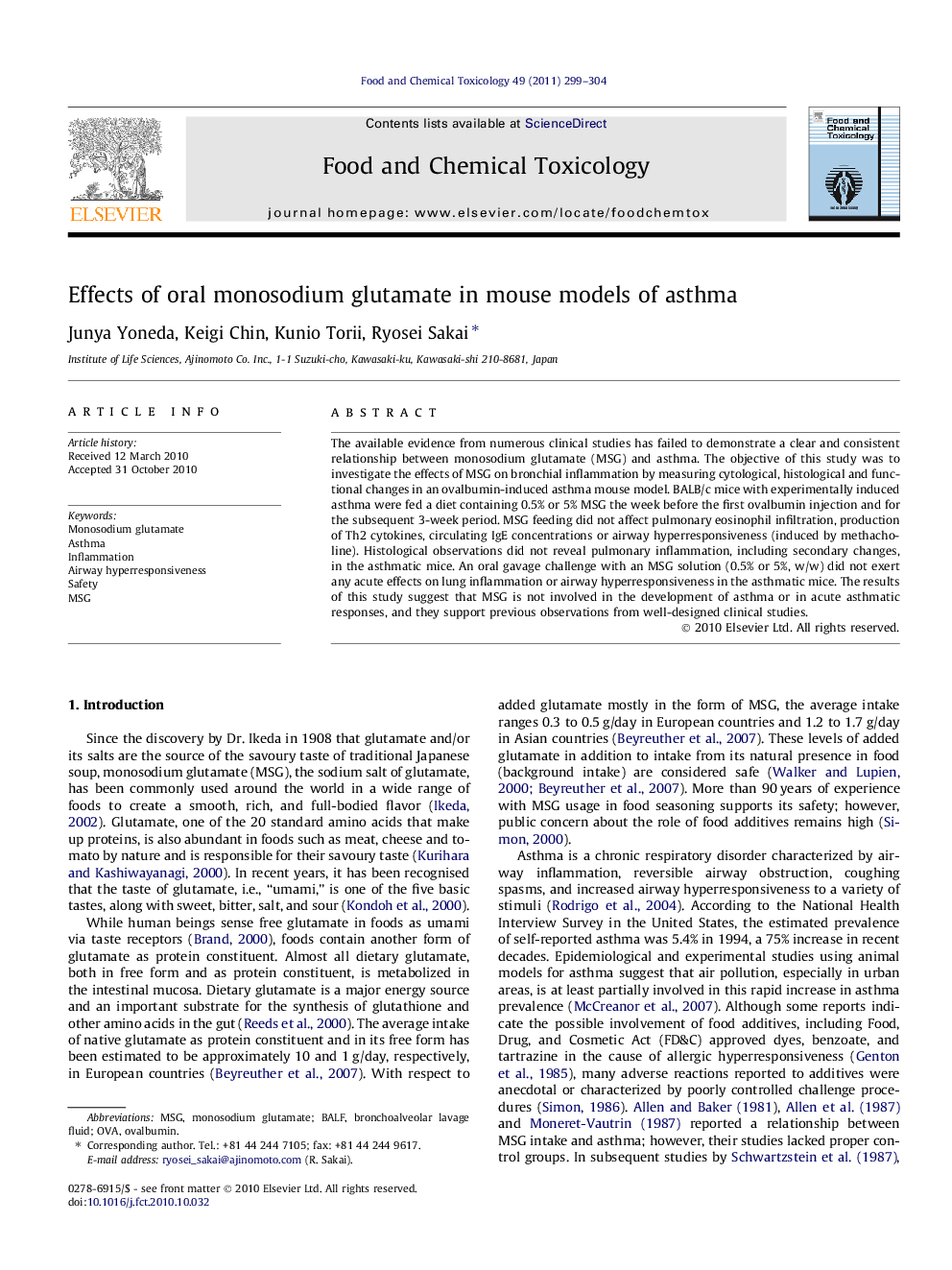| Article ID | Journal | Published Year | Pages | File Type |
|---|---|---|---|---|
| 5853912 | Food and Chemical Toxicology | 2011 | 6 Pages |
The available evidence from numerous clinical studies has failed to demonstrate a clear and consistent relationship between monosodium glutamate (MSG) and asthma. The objective of this study was to investigate the effects of MSG on bronchial inflammation by measuring cytological, histological and functional changes in an ovalbumin-induced asthma mouse model. BALB/c mice with experimentally induced asthma were fed a diet containing 0.5% or 5% MSG the week before the first ovalbumin injection and for the subsequent 3-week period. MSG feeding did not affect pulmonary eosinophil infiltration, production of Th2 cytokines, circulating IgE concentrations or airway hyperresponsiveness (induced by methacholine). Histological observations did not reveal pulmonary inflammation, including secondary changes, in the asthmatic mice. An oral gavage challenge with an MSG solution (0.5% or 5%, w/w) did not exert any acute effects on lung inflammation or airway hyperresponsiveness in the asthmatic mice. The results of this study suggest that MSG is not involved in the development of asthma or in acute asthmatic responses, and they support previous observations from well-designed clinical studies.
